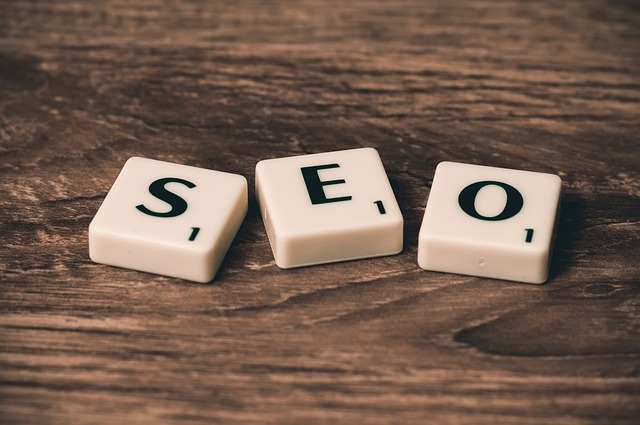How Much Marketing Budget for Startup is Needed?

For startups, allocating the marketing budget effectively is a balancing act between maximizing impact and managing limited resources. How much marketing budget for startup is needed?
A strategic approach ensures optimal utilization of funds to drive growth and establish a market presence.
How to Divide Marketing Budgets for Startups
Allocating Funds to Key Channels
Startups should allocate their marketing budget across various channels like content marketing, social media management, and Google Ads.
It’s important to identify which channels reach your target audience most effectively.

Spend money on marketing tools and channels that have proven effective in your industry.
Balancing between online marketing, social media ads, and traditional advertising can help maximize market reach and build brand awareness.
Investing in Content Marketing and SEO
A significant portion of a startup’s marketing budget should be dedicated to content marketing and SEO. This investment helps in building brand awareness and driving website traffic.
Effective content strategy can attract potential customers organically, increasing sales over time.

Startups should also consider using email marketing platforms and webinar software as part of their content strategy to engage potential clients.
Focus on Customer Acquisition and Retention
Customer acquisition, including expenses on paid media and social media ads, is a crucial part of a startup marketing budget.
However, startups should not overlook the importance of repeat business.
Allocating funds to marketing initiatives that focus on customer retention, such as email marketing and loyalty programs, can enhance profit margins and ensure long-term success.
Budgeting for Market Research and Sales Team Support
Market research is essential for understanding market size, customer needs, and competition.
Allocating a portion of the budget for market research can provide valuable insights for other marketing activities.
Additionally, supporting the sales team with the necessary tools and resources to convert leads into sales is vital. This includes investing in CRM systems and sales training.
Scaling Budget with Growth
As the company grows, the marketing budget should evolve to support expanding marketing efforts.
Early stage startups might spend a higher percentage of their gross revenue on marketing compared to more established companies.

As annual revenue increases, the marketing spend can become more targeted and efficient.
Startups should continuously evaluate their marketing strategy and adjust the budget as the business scales and market dynamics change.
How to Calculate Marketing Spend in Startup
To calculate marketing spend in a startup, first determine the total budget available based on your company’s gross revenue or funding. Typically, startups allocate between 12-20% of their gross revenue to marketing. Then, divide this budget across various channels based on your marketing strategy, considering factors like target audience, market competition, and business goals. Track and adjust the spend periodically to ensure optimal allocation of resources and maximum ROI as budget for your startup.
How to Cost-Optimize Your Startup’s Marketing Strategy
Use free marketing tools and platforms.
To optimize a startup’s marketing budget, leveraging free marketing tools and platforms is essential. These tools can significantly reduce marketing expenses, especially in the initial stages where funds are limited.
For startup marketing, using social media management tools, analytics platforms, and graphic design software without cost can dramatically cut down marketing campaign costs.

This approach allows startups to focus their spending on key areas that directly contribute to increasing sales and market share.
Especially for early-stage startups and self-funded companies, free tools provide a cost-effective solution to reach potential customers and achieve business goals without overspending.
Prioritize organic reach with SEO, content marketing:
For startups, prioritizing organic reach through SEO and content marketing is a cost-efficient marketing strategy that aligns with a limited startup marketing budget.
Investing time and effort in optimizing landing pages and creating valuable content for your target audience can lead to increased visibility and market share without the significant expense of paid media.

By focusing on building content that appeals to potential clients and early adopters, startups can increase sales and grow their total revenue organically.
This approach not only saves marketing costs but also builds a solid foundation for the marketing department, enhancing long-term profit margins.
Leverage social media for brand engagement.
Leveraging social media is a cost-effective strategy for startups to enhance brand engagement without significantly impacting the marketing budget.
By using platforms where potential clients are active, startups can create impactful marketing campaigns that resonate with their target audience.

Social media channels serve as powerful marketing tools, allowing startups to showcase their brand, share content, and interact directly with potential customers.
For most startups, especially in the early stage, social media offers a way to build brand awareness and engage new customers without the high costs associated with paid ads, aligning with the main focus of conserving marketing spend.
Utilize word-of-mouth and referral marketing
Word-of-mouth and referral marketing are key strategies for startups to maximize their marketing budget. Encouraging satisfied customers to refer potential clients can significantly reduce marketing costs while increasing credibility and trust among potential customers.

This organic form of marketing is especially beneficial for early-stage startups, as it helps conserve gross revenue and contributes to a better profit margin.
Referral marketing, being a low expense process, aligns with the budget-conscious strategies of most startups, allowing them to spend money more effectively on other key expenses and marketing efforts.
Conduct targeted, cost-effective email marketing campaigns
Email marketing remains one of the most effective and budget-friendly marketing channels for startups.
By conducting targeted email campaigns, startups can reach potential clients with personalized content directly related to their interests and needs.
This strategy enables startups to optimize their marketing budget, as email marketing typically involves lower costs compared to other marketing tools.

For a startup founder, focusing on a well-planned email marketing campaign can drive more money into the business by shortening the sales cycle, increasing potential customer engagement, and promoting repeat business – all while keeping the marketing spend within the startup marketing budget.
Collaborate with influencers for mutual brand promotion.
Collaborating with influencers is a strategic way for startups to optimize their marketing budget.
This approach involves partnering with individuals with a significant following and can effectively promote the brand to potential customers.

For an early-stage startup, influencer collaborations can be a cost-effective alternative to traditional advertising, allowing them to leverage the influencer’s audience for brand exposure.
Such partnerships often lead to increased gross revenue and brand recognition, making it a smart spend on marketing.
Startups typically benefit from these collaborations, as they can reach a wider audience without the hefty costs associated with large-scale marketing campaigns.
Analyze and adjust strategies using data insights
For startups, regularly analyzing and adjusting marketing strategies based on data insights is crucial for budget optimization.
Utilizing tools that track the performance of marketing efforts, such as email marketing responses and landing page traffic, helps the marketing team understand what resonates with potential clients.

By focusing on strategies that yield results, startups can allocate their marketing budget more effectively, ensuring that every dollar spent contributes to business growth.
This data-driven approach is essential for startups as it allows for informed decision-making, ensuring marketing spend aligns with the overall marketing plan and business goals.
Opt for cost-effective webinar software for outreach
Choosing cost-effective webinar software is an excellent strategy for startups looking to maximize their marketing budget.
Webinars offer a platform to engage directly with potential clients and customers, providing valuable content and building brand authority.

For an early stage startup, using webinars as a marketing tool can be highly beneficial, as they typically require a lower investment compared to other marketing channels.
This approach aligns with the budget constraints of startups, allowing them to effectively reach their target audience without overspending.
Implementing webinars into the marketing plan can enhance overall marketing efforts.
They are driving potential customers to the company’s landing page and increasing engagement without a substantial impact on the startup’s marketing budget.
Focus on customer retention and loyalty programs.
Focusing on customer retention and implementing loyalty programs is an effective strategy for startups to utilize their marketing budget wisely.
Retaining existing customers is often more cost-efficient than acquiring new ones.
By investing in loyalty programs and personalized communication, such as targeted email marketing campaigns, startups can increase the lifetime value of existing customers.

This approach not only helps in maintaining a steady revenue stream but also turns satisfied customers into advocates for the brand.
For a startup, spending on marketing strategies that foster customer loyalty, including those offered by reputation management reseller services, is a smart investment because it builds a stable base of repeat clients and enhances the company’s reputation.
Streamline marketing processes to reduce unnecessary expenses:
Streamlining marketing processes is key to optimizing a startup marketing budget.
By evaluating and refining marketing tools and strategies, startups can eliminate inefficiencies and reduce unnecessary spend.

This might include automating repetitive tasks with webinar software or optimizing email marketing campaigns to target potential clients more effectively.
A lean marketing team that focuses on high-impact activities can significantly reduce overall marketing spend while maintaining effectiveness.
For startups, careful management and continuous evaluation of marketing budgets and strategies are essential to ensure that each dollar spent contributes meaningfully to the company’s goals, thereby reducing wasted expenditure and maximizing the impact of the budget for the startup spend.
FAQ on How Much Marketing Budget for Startup?
How much should be the marketing budget?
Typically, businesses allocate 7-12% of their total revenue to marketing, depending on their size, industry, and growth stage.
What is a good marketing budget for a small business?
A small business should allocate around 8-10% of its gross revenue to marketing, adjusted based on specific business goals and industry standards.
What is the marketing budget for a brand launch?
For a brand launch, budgeting 12-20% of the expected revenue for the first year is recommended, focusing on impactful, awareness-building campaigns.
How much does advertising cost for a small business?
Advertising costs for a small business can vary widely, but on average, they might spend $2000 to $5000 per month on various advertising channels.
What is a good marketing budget for a startup?
A startup should allocate approximately 12-20% of its gross revenue to marketing, emphasizing digital and direct marketing channels for cost efficiency.
How do you set up marketing for a startup?
Setting up marketing for a startup involves defining target audiences, selecting appropriate channels, allocating budget wisely, and continuously measuring and adjusting strategies.
Is advertising a startup cost?
Yes, advertising is considered a startup cost, essential for building brand awareness and attracting initial customers during the early stages of a business.
How can one increase the market reach for the startups?
Startups can increase market reach by leveraging social media, engaging in community building, collaborating with influencers, focusing on SEO, and utilizing content marketing to attract a wider audience.
How much should a startup spend on marketing per month?
A startup should typically spend 12-20% of its gross revenue on marketing per month, though this can vary based on the business model and growth stage.
What is a realistic marketing budget for a small business?
A realistic marketing budget for a small business is usually around 8-10% of its gross revenue, tailored to its specific industry and market dynamics.
How do I market my startup with no money?
Market a startup with no money by utilizing free digital marketing tools, engaging in social media marketing, creating valuable content, leveraging word-of-mouth, and building partnerships for cross-promotion.
Which market is best for startup?
The best market for a startup depends on its niche, target audience, and competitive advantage. It’s crucial to choose a market with a clear demand for your product or service and room for growth.
How much should I budget for marketing?
Budget 7-12% of your total revenue for marketing, adjusting based on your business size, industry, and specific growth objectives.
What do startup costs include?
Startup costs include expenses such as legal fees, licensing, branding, initial marketing campaigns, office space rental, equipment purchases, technology setup, and initial inventory or raw materials.
What are start-up costs?
Start-up costs are the initial expenses incurred in creating and launching a new business, covering aspects like market research, legal fees, equipment, initial inventory, and early marketing efforts.
What is the best marketing strategy?
The best marketing strategy is one that aligns with your business goals, resonates with your target audience, and leverages the most effective channels for your specific industry and market.
How do you develop a marketing strategy plan?
Develop a marketing strategy plan by understanding your target audience, defining clear business goals, analyzing the competition, choosing the right marketing channels, allocating budget, and setting measurable objectives.
How big should the market be for a startup?
The market for a startup should be large enough to allow for growth and profitability, but specific size depends on the startup’s niche, competition, and capacity to serve potential customers.




One Comment